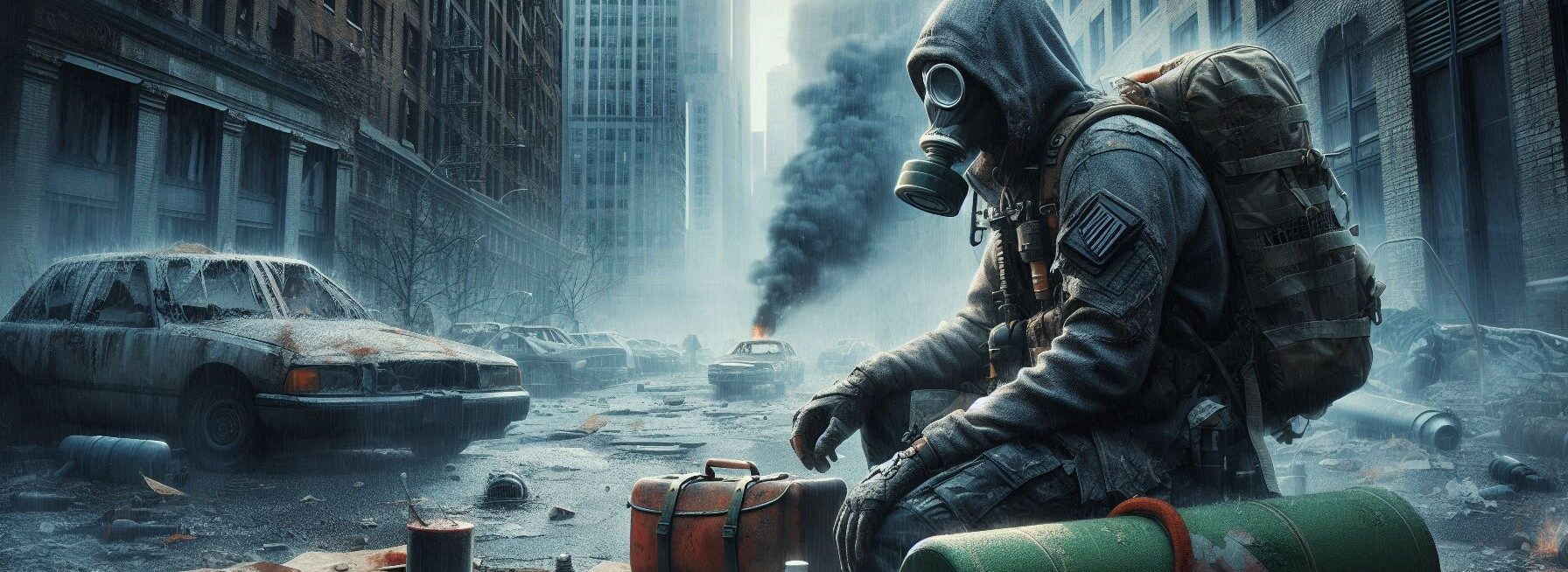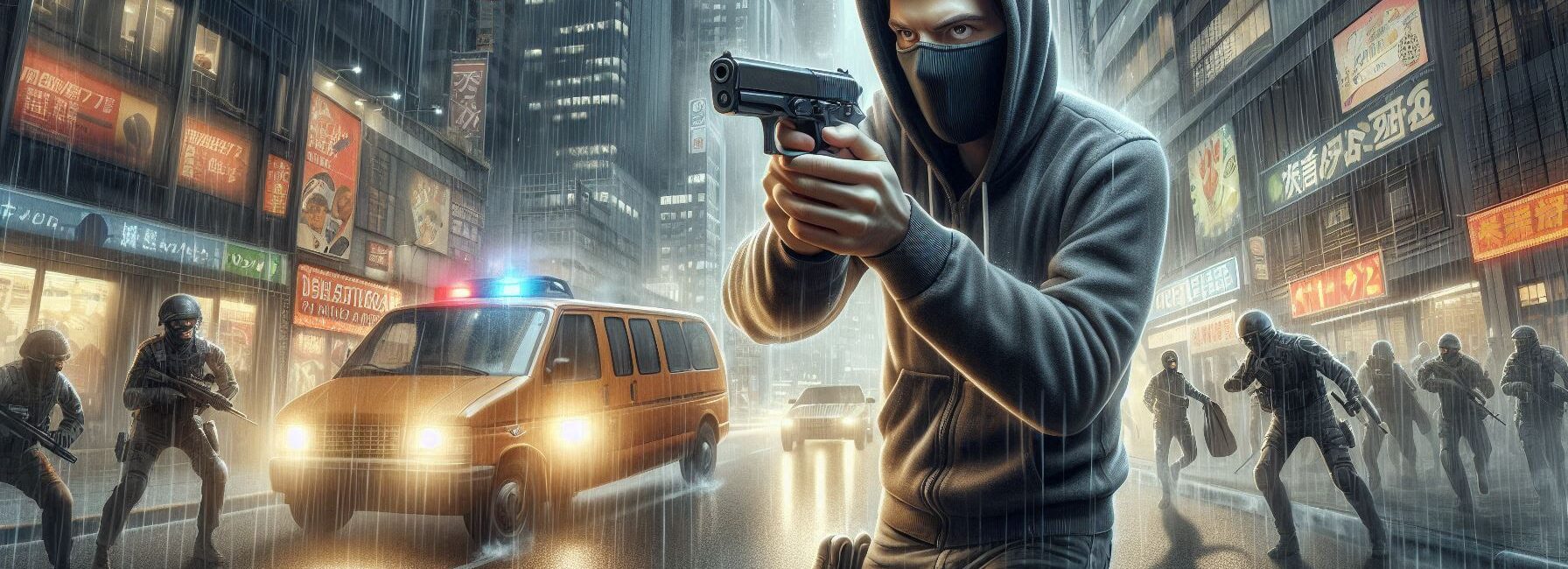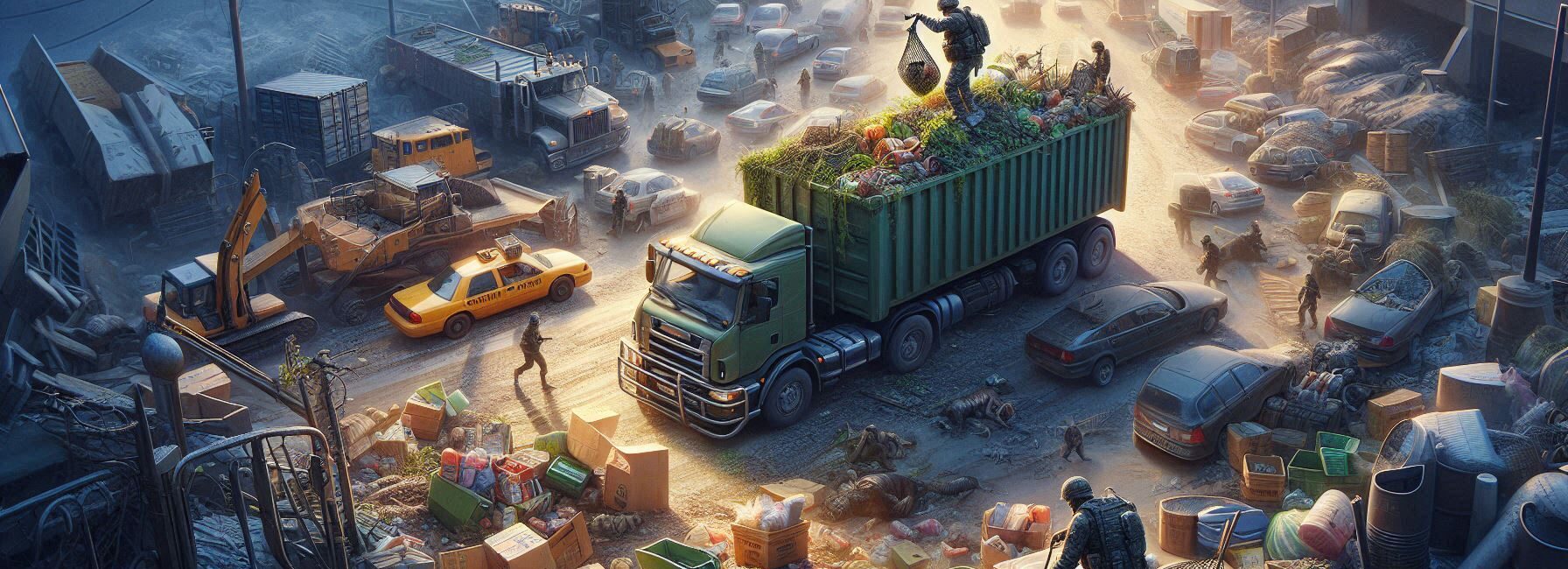Last Updated on November 1, 2025 by Kevin Collier

Top Takeaways and Key Concepts
Focus on what you can do next, not what you can’t control.
Use slow, deep breaths to clear your mind and lower your stress.
Break big problems into small tasks, tackle one thing at a time.
Observe your environment calmly, note exits and threats before acting.
Communicate clearly with others—share your plan and listen to theirs.
Picture this: you’re just chilling, sipping your latte at that cozy café you love. Maybe you’re scrolling through your phone. Life feels good. Then you glance outside. Whoa! It looks like a disaster movie out there. Sirens wailing, people rushing around with that wild look in their eyes. Yikes!
Staying calm in all that? It’s tough. Like trying to find a parking spot when it’s super busy in downtown. So, how do we keep our cool?
Please Note: This post may contain affiliate links. If you click one of them, we may receive a commission at no extra cost to you. As an Amazon Associate, I earn from qualifying purchases.
First, take a deep breath. Seriously, just breathe. In…and out. It helps. Even if your heart feels like it’s racing, focus on calming down. Maybe think of your favorite beach instead. That helps, right?
Next, look for the people around you. Are they panicking? Are they calm? Sometimes, if you see someone else staying cool, it helps you too. It’s like a calming wave that spreads.
Try to find the nearest exit, just in case. Knowing where to go? It's kind of like playing a game of hide and seek. You want to be prepared.
Talking to someone helps. Share your thoughts or fears with a friend or the barista. It can make things feel a bit lighter. Plus, sometimes they know what’s going on. Hearing it from someone else can really help.
Keep your mind busy. When chaos happens, think about what you can do next. Plan a little. Should you help others? Or should you stay put? It’s okay to take a moment to decide.
We all face moments when things feel crazy. Staying calm is a skill we can practice. You’ve got this! So, next time you're in a situation like this, remember your latte, your breath, and the quiet beach. You’ll find your way through!
Contents of This Page
*** Shop for Survival Gear - Tools - Kits ***
Survival Gear - Bags and Backpacks - Knives - Boots/Footwear - Communication
Outdoor Cooking - Gloves - Hydration - Dry Boxes - Water Filtration Systems
Tents - Sleeping Bags - First Aid Kits - Multi-Tools - Flashlights - Fire Starters
Navigation - Survival Food - Night Vision - Headlamps - Stun Guns - Binoculars
Take a Deep Breath – Seriously, Just Breathe
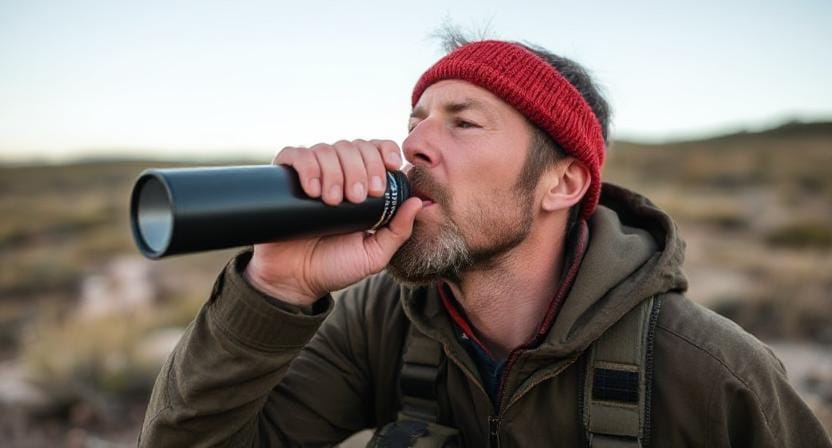
First things first: when you start to panic, you need to remember one simple thing: breathe. I mean truly take a breath! You'd think this would come naturally since we do it all day without even thinking about it.
But I can tell you that when the adrenaline comes in and your heart starts racing quicker than a squirrel on espresso, breathing can be the last thing on your mind.
Have you ever tried deep breathing, by the way? It's not just for yoga sessions or those times when someone asks you to share your feelings.
For four seconds, breathe deeply through your nose and hold it for four seconds (count them out like you're trying to impress a judge). Then, for another four seconds, breathe slowly through your mouth.
Do this over and over until you feel less like a scared rabbit and more like… well, something more relaxed, like a sloth lying on a warm rock.
This simple trick helps you relax and think more clearly. Who wants to make decisions while they're breathing too fast?
Be the Observant Ninja: Look Around You
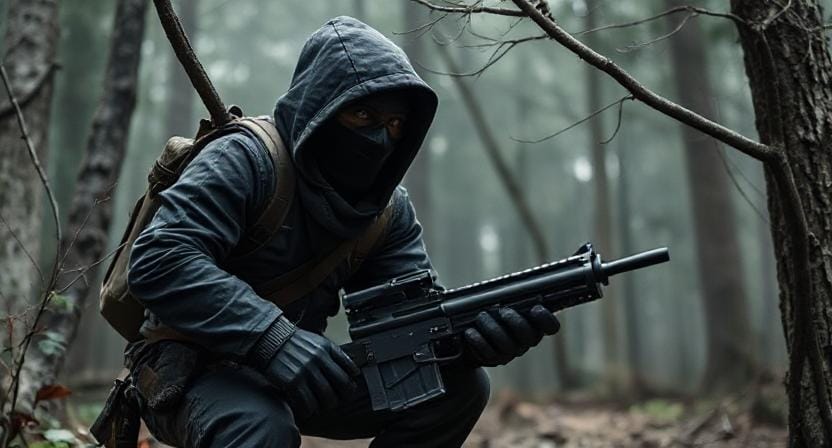
Next, you need to look around you. Now is not the time to act like an ostrich and bury your head in the sand—or worse, beneath that mountain of filthy laundry you've been meaning to do (really, why does laundry multiply?). Instead, look around you and see what's going on.
Look for more than one exit. You can't always tell which method is safest or will keep you out of trouble. Also, keep an eye out for any possible dangers. There might be someone who seems too eager to cause trouble (and no, I'm not talking about my neighbor's cat).
If you pay attention to what's going on around you, you'll be able to make better decisions later.
Interestingly, being aware of your surroundings might also help you forget about your worries. When you focus your attention, your brain has something useful to do instead of going off on “What if?” thoughts that only happen in movies.
Make a Plan Of Action: Tap Into Your Inner Survivalist
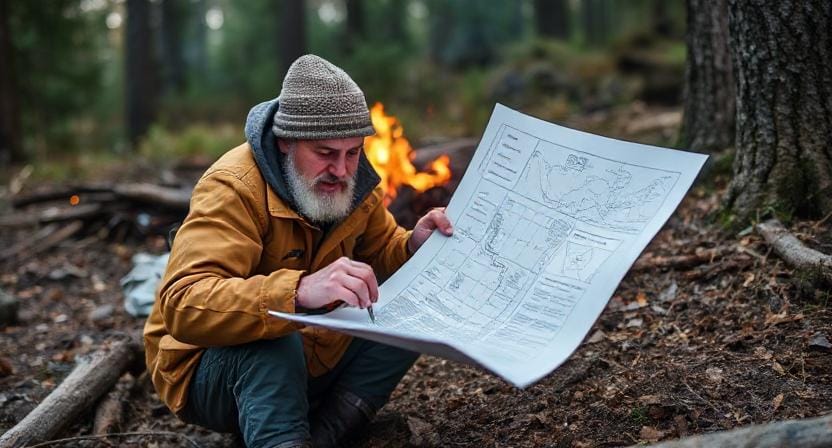
It's time to make a plan of action when you've calmed yourself and looked at the scenario like an urban ninja master. This doesn't mean making plans or anything fancy; just write down some simple actions based on what you've seen.
For instance, if there is civil upheaval nearby but you are secure where you are, have a plan for how to get out safely if you need to. You could try to choose routes that don't go through crowded neighborhoods or places that could become hotspots (not those fashionable eateries that everyone talks about).
If you're running low on supplies at home because of panic shopping (thanks again for stockpiling toilet paper!), think about whether it's worth going out or waiting until things calm down.
But to be fair, safety should always come before convenience! A solid plan takes into account both short-term necessities and long-term possibilities. Let's be honest: no one enjoys surprises during an emergency unless they involve cake.
Stay in Touch: Use Technology Wisely
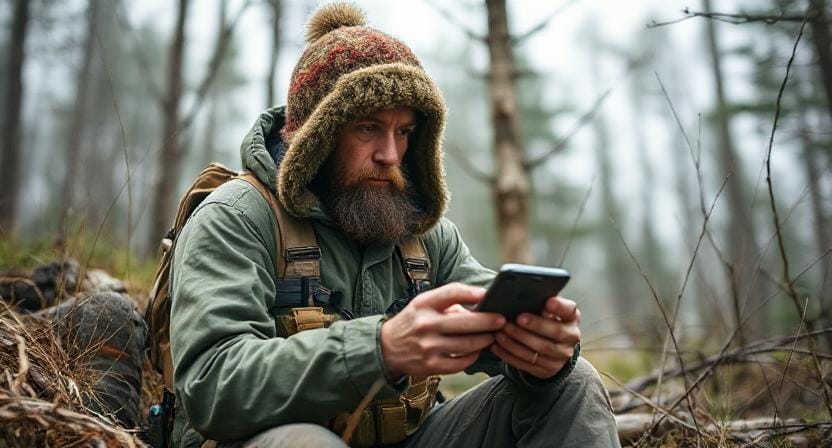
In today's tech-savvy society, when most people can't live without their cellphones, staying connected can give you important information in an emergency, but only if you utilize it carefully! First of all, don't panic-scroll through social media every five minutes seeking for information. That will only make things worse!
Instead, use trustworthy sources like news apps or official channels from local governments so you don't get fooled by stories that spread quicker than family talk. Setting notifications can also help you keep an eye on things without having to check them all the time. Just remember that your phone's battery life is quite important during crises!
Speaking of technology, it could be a good idea to have extra power sources on hand as well. When there aren't any charging stations around, portable chargers can save the day. And yes, I still wish I had brought my portable charger on my last camping trip.
Keep Things In Perspective: Humor Helps!
Lastly, here's the good news: it's quite beneficial to keep things in perspective when things go crazy outdoors. I know, it's easier said than done, right? But you know what? Even when it seems like the world is coming apart, laughing can help.
Think of a time when you laughed. You may try to recollect an amusing anecdote from when you were a kid. Like that time you ran into a wall while playing tag. Ouch! But also quite funny! Those times can make things feel better, even when they seem weighty.
Things may seem hard right now, but they won't stay that way forever. What kind of crisis will happen today? It will go away. Just like how roller coasters go up and down and around in crazy ways. You scream sometimes, but you also smile. You lived, right?
That ride is like life. A lot of fun, with highs and lows. In the middle of all the craziness, look for a modest reason to laugh. Talk to your buddies about foolish things. Tell those funny stories. It truly, really helps.
You are not alone when things get tough. You have the power to get through this. You will remember how you dealt with everything, much like you do after a roller coaster trip. Stay strong! You can do this!
Frequently Asked Questions
How do slow breaths help during an urban crisis?
Slow, deep breathing lowers heart rate, interrupts panic responses, and allows clearer thinking under sudden stress.
Why is observing exits important before acting?
Knowing exits and threats helps you avoid impulsive moves and choose safer, less congested escape paths.
Can breaking big tasks into smaller ones really help?
Yes. Small tasks reduce overwhelm, conserve mental energy, and allow progress without freezing in fear.
How can communicating with others improve crisis decisions?
Sharing thoughts clarifies priorities, increases perspective, and reduces confusion caused by chaotic surroundings.
Is it normal to feel panic when a crisis suddenly begins?
Yes. Sudden chaos triggers adrenaline, but using breathing and observation techniques reduces panic responses fast.
Should you always leave the area immediately in a crisis?
Not always. Assess first—rushing may place you into danger zones or blockades you did not notice initially.
Does humor truly help maintain calm under stress?
Light humor lowers tension, resets emotional intensity, and helps the brain re-center instead of spiraling.
Suggested Resources:
Surviving Crisis Situations
https://www.ready.gov/survival-guide
How Humor Can Help During Stressful Times
https://www.psychologytoday.com/us/blog/what-works-and-why/202002/how-humor-can-help-during-stressful-times
Emergency Preparedness Tips
https://www.redcross.org/get-help/how-to-prepare-for-emergencies.html

Kevin Collier is a seasoned survivalist and expert in prepping and homesteading, contributing to WiseSurvive.com. With a deep-rooted passion for self-sufficiency and outdoor survival skills, Kevin shares practical advice, strategies, and resources to help individuals prepare for any challenge. His informative articles cover a range of topics, from essential survival techniques to sustainable living practices, empowering readers to thrive in any situation. Whether you're a novice or a seasoned prepper, Kevin's insights will inspire you to take charge of your readiness and build resilience for the future.

